The Ultimate Guide for Overbite or Buck Teeth
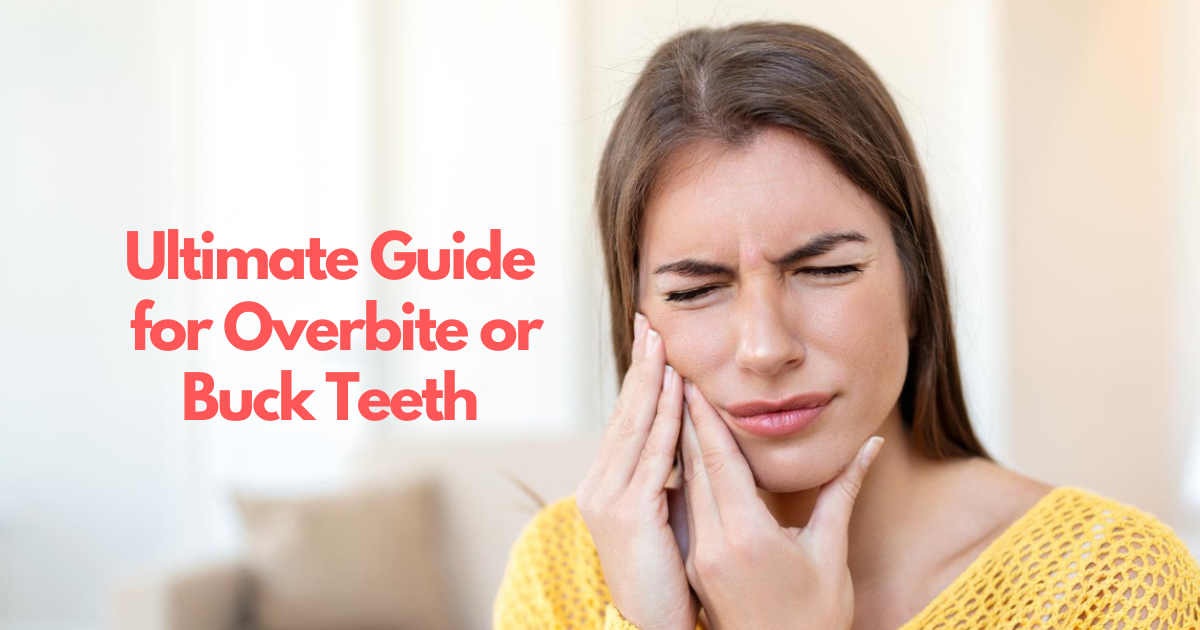
A perfectly aligned set of pearly white teeth can elevate your good looks and compel everyone to smile back every time you grin at them. It is a well-known fact that a beautiful smile brings warmth and friendliness to even the most unpleasant situations. Unfortunately, not all of us are blessed with naturally aligned teeth. Orthodontic problems like overbite or buck teeth can affect your appearance and self-confidence.

Not only may that, ignoring overbite or buck teeth adversely affect your dental health. Long-term, living with an overbite can have effects like tooth decay, gum diseases, and jaw misalignment. This article will delve deeper into the causes, effects, and possible treatment of overbite or buck teeth.
What is an Overbite?
An overbite is a malocclusion or misalignment of teeth, wherein the upper set overlaps the lower set of teeth. It is caused when the jaws are misaligned, and the upper teeth are placed more than 2mm forward than the lower teeth. An overbite is also known as buck teeth.
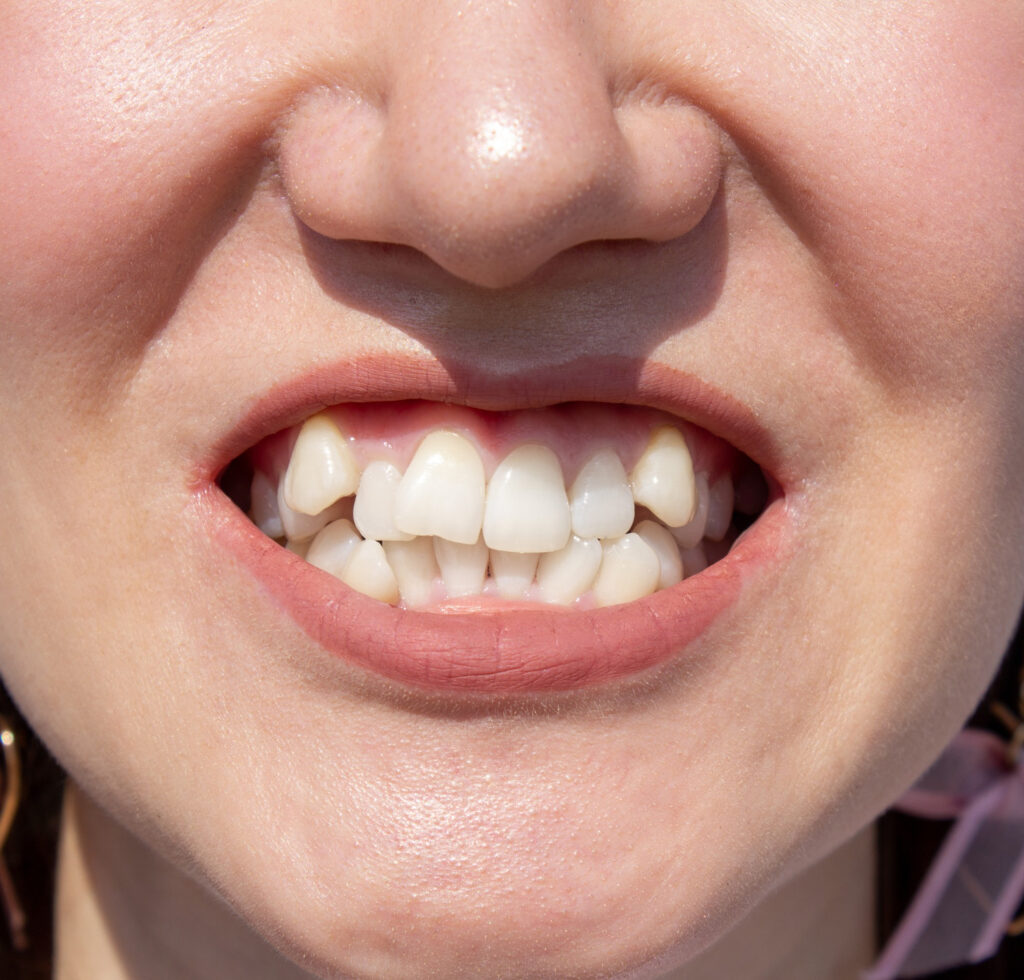
Late legendary rock musician Freddy Mercury had an overbite that he chose to embrace. Luckily for Freddy, the overbite did not cause further health problems; however, not everyone is that fortunate. A severe overbite can lead to irreversible tooth damage and temporomandibular joint dysfunction. In growing children, an overbite can alter the shape of their faces as they grow and cause low self-esteem.
Causes of an Overbite
There are various causes of an overbite. Starting from childhood, these causes may continue up to an advanced age and worsen teeth alignment with time. Here is a look at some of the leading causes of an overbite –
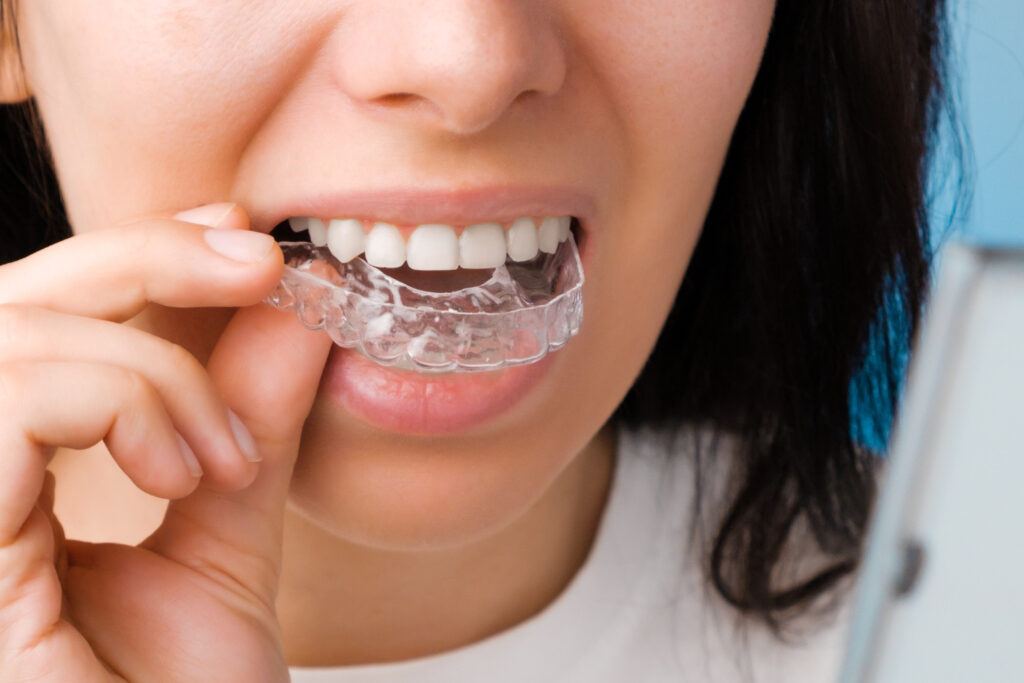
- Tongue Thrusting – When the tongue continually pushes the back of the teeth, it can change the teeth’ alignment to cause an open bite or overbite. It is usually observed in children due to swollen tonsils, adenoids, or poor chewing habits. It may also be caused by stress.
- Thumb Sucking – Thumb sucking is common in young children. However, if thumb sucking continues beyond the age of three or four and throughout the development of permanent teeth, it may cause buck teeth. The pressure from sucking a finger or thumb for long hours can give the upper teeth an unnatural angle.
- Overuse of a Pacifier – Similar to thumb sucking, overusing a pacifier beyond three or four years of age can harm a child’s orthodontic development. It increases the risk of an overbite or other malocclusions.
- Genetics – Overbite is a genetic condition in some families, and many children are born with a misaligned jaw. In such cases, babies may also have an underdeveloped upper or lower jaw. Proper care from infancy can help such children avoid the genetic development of an overbite. However, if it is unavoidable, the overbite should be treated in childhood to prevent the result of permanent misalignment.
- Missing or Crowded Teeth – If teeth are lost due to an accident or decay, it affects teeth spacing in the entire jaw. Similarly, if you have crowded teeth, it can alter the tooth alignment to cause an overbite or buck teeth.
- Teeth Grinding – Grinding your teeth or bruxism can cause overbite or buck teeth. Many people grind their teeth subconsciously or in their sleep. It can affect teeth alignment and cause discomfort to your head and jaws. Continually grinding teeth can adversely affect the tooth enamel and result in tooth decay.
- Tumors or Cysts – The development of a tumor or cyst in the mouth or jaw may cause jaw misalignment. It is because a chronic swelling or bone growth in the upper part of the mouth pushes the jaw forward.
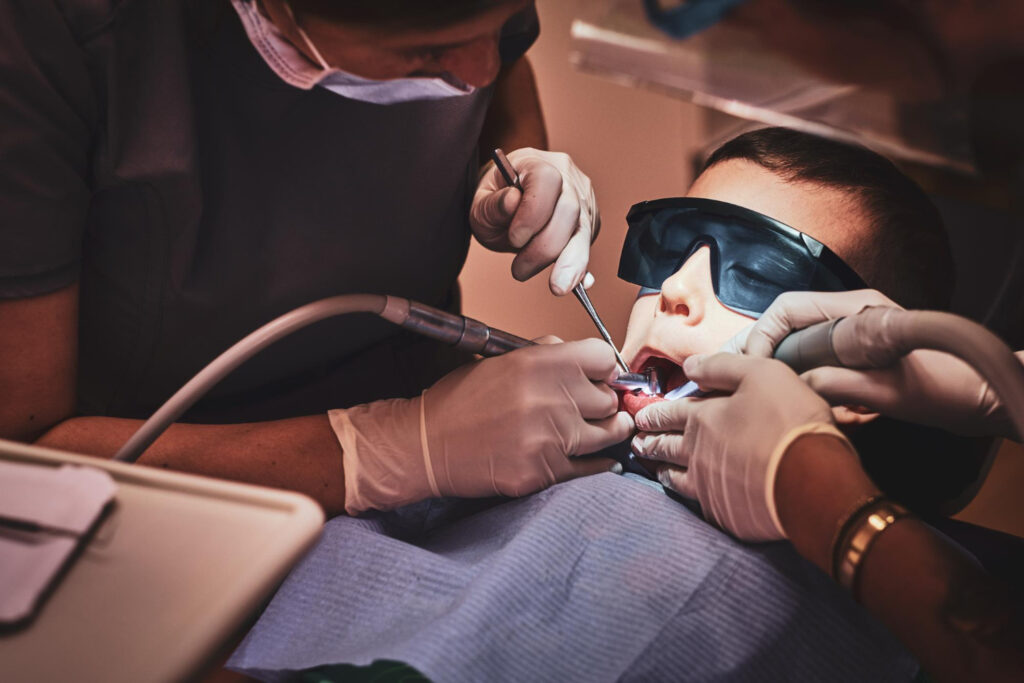
Health Risks Due to Overbite Teeth
There are various health risks associated with overbites. Depending on the problem’s severity, an overbite can cause some or all of the health issues listed below. Here are some of the most commonly occurring problems –
- Wearing out of the tooth enamel
- Aggravated risk of gum disease
- Speech impediments such as a lisp or stutter
- A habit of teeth-grinding
- Discomfort while chewing some or all kinds of food
- Jaw pain or toothaches
- Severe headaches
- A problem in breathing due to mishappen jaw
Treatment Options for Overbite or Buck Teeth
Thanks to the development of orthodontic sciences, different treatments are available to correct overbite or buck teeth. Here is a look at the top four recommended treatments –
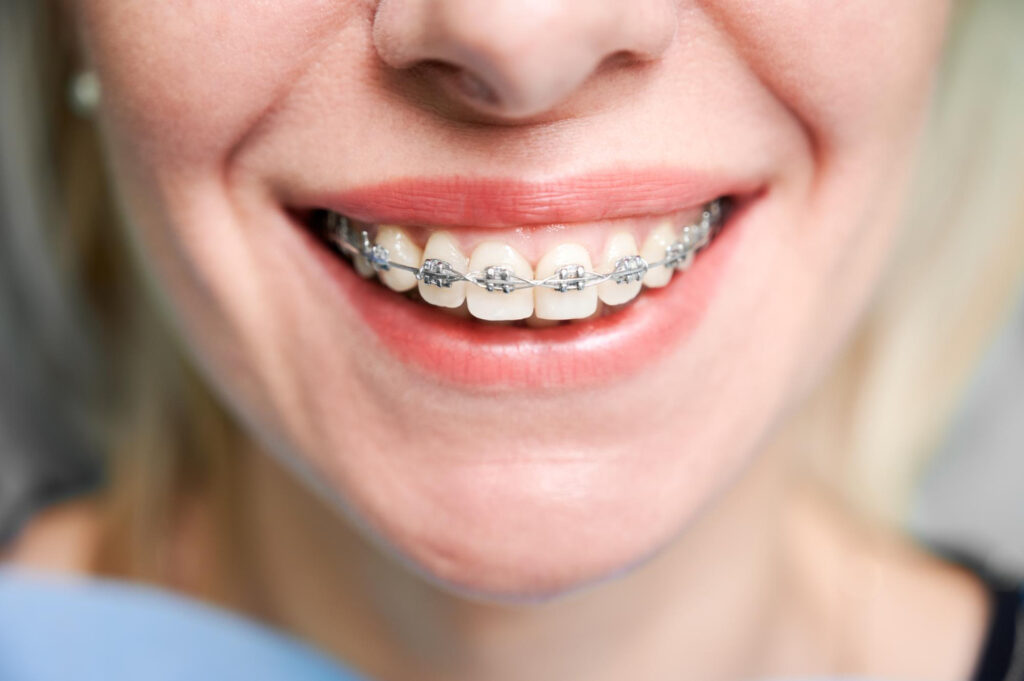
- Braces – Wearing traditional wired braces or retainers can help bring your upper teeth to the correct position. It will improve the alignment and correct the overbite. Children and teenagers often have braces, but adults can benefit too. Braces work like metal brackets that slowly manipulate your teeth to change their position and straighten tooth alignment. In some cases, tooth extraction is necessary to start the alignment process.
- Palate Expansion – Sometimes, overbite occurs because the upper jaw or palate is too small to accommodate adult teeth, for example, in a growing child or a young adult. In such cases, a palate-expanding appliance is placed in your mouth that helps your jaw to expand to the correct size and prevent crowding of teeth. When teeth have enough room, the misalignment corrects by itself.
- Invisalign – One of the latest developments in teeth alignment treatments is Invisalign. It comes highly recommended by orthodontists worldwide for correcting overbite in adults. Patients are given a clear plastic aligner custom-made from a mold of their teeth, and they must wear it for all their waking hours. The aligner gradually coaxes teeth into the proper position.
- Surgery – Severe cases of overbite may also need surgery. Jaw surgery helps align the upper and lower jaws to correct overbite or buck teeth. However, this option is only possible for adults with fully developed jaws. It is not suitable for children who are still growing.
Teeth, just like people, are different. Everyone has a unique set of teeth with differing needs. But if you or anyone around you has been living with an overbite for a long time, it is imperative to seek corrective treatment. It can prevent severe orthodontic illnesses and complications in the long run.
Ad



